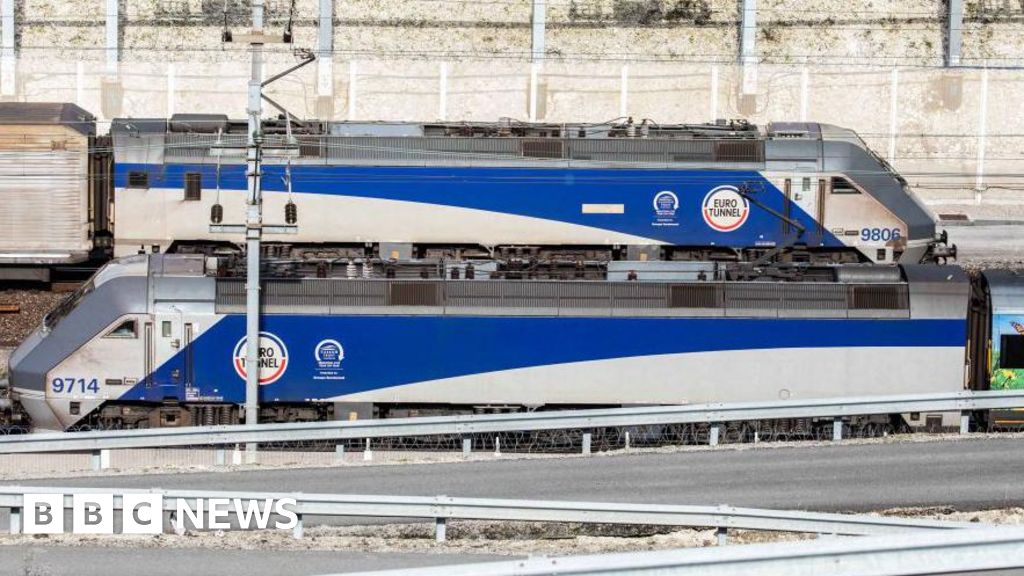image source, Getty Images
Eurotunnel's boss has insisted there will be no long queues of cars at terminals when the EU's new travel system launches in October.
Britons traveling to and from Europe will have to register their fingerprints and photos at the border, raising concerns about delays.
Eurotunnel chief executive Jan Lerish said journeys would take five to seven minutes longer, but the additional lanes and technology would make the process smoother.
The BBC has taken a first look at the new machines people will need to use in Folkestone or Calais.
At the Port of Dover, the St Pancras Eurostar terminus and the Eurotunnel in Folkestone, French border police are checking people's passports as they leave the UK.
The much-delayed EU Entry and Exit System (EES) will replace manual passport stamps.
Citizens of countries outside the area, including the UK, will be required to register their biometric information.
As a result, there have been repeated warnings about queues and calls for the start of the EES to be postponed again.
There was hope that an app being developed by the EU would allow some of the registration to be done from home, but it is not expected to be available until October.
At Eurotunnel's Folkestone and Calais sites, we saw how the company that operates vehicle and cargo shuttles across the Channel Tunnel is preparing for the new system.
The equivalent of £70 million is being spent on building processing zones, where people will queue up in cars to use automated machines.
Jan Relish, chief executive of Eurotunnel operator GetLink, told the BBC that travelers “simply do so”. [get] Get out of your car, spend a few minutes at the kiosk, then get back in your car and continue your journey. ”
“It will take another five to seven minutes to get through,” he said, but added: “We have expanded the number of lanes, so there will be no delays on the highway, nothing.” It will happen very smoothly. ”
The company plans to hire 140 new staff to support passengers.
I tried out one of the prototype machines that Eurotunnel uses in its terminals.
First, I scanned my passport.
The machine then took a photo of my face.
They were then asked to place their right hand on another scanning pad and their fingerprints were recorded.
A series of questions about my journey appeared on the touchscreen and I had to answer with a “yes” or “no.”
At the Port of Dover, the plan is a little different.
Port officials will provide car passengers with iPads to register their information.
Coaches will be processed off-site at Western Docks using electronic gates or kiosks.
Monday marks 30 years since Queen Elizabeth II and President Mitterrand attended the official opening of the Channel Tunnel.
Paid passengers had to wait several more months to board a Eurostar train.
The tunnel cost £2 billion over budget to open. The operating company was on the brink of bankruptcy at one point, but has since turned a profit and continues to provide services through the tunnel.
Now that the pandemic is over and preparations are being made for the introduction of the EES, GetLink boss Lelish hopes to see more trains passing through the tunnel.
Eurostar is a separate company from Eurotunnel and operates passenger services from London's St Pancras station through the Channel Tunnel to Paris and beyond. It is the only operator to do so since the tunnel opened.
There is now talk of a rival business emerging.
“I am confident that direct connections between London and Europe will double within the next 10 years,” Lerich said.


